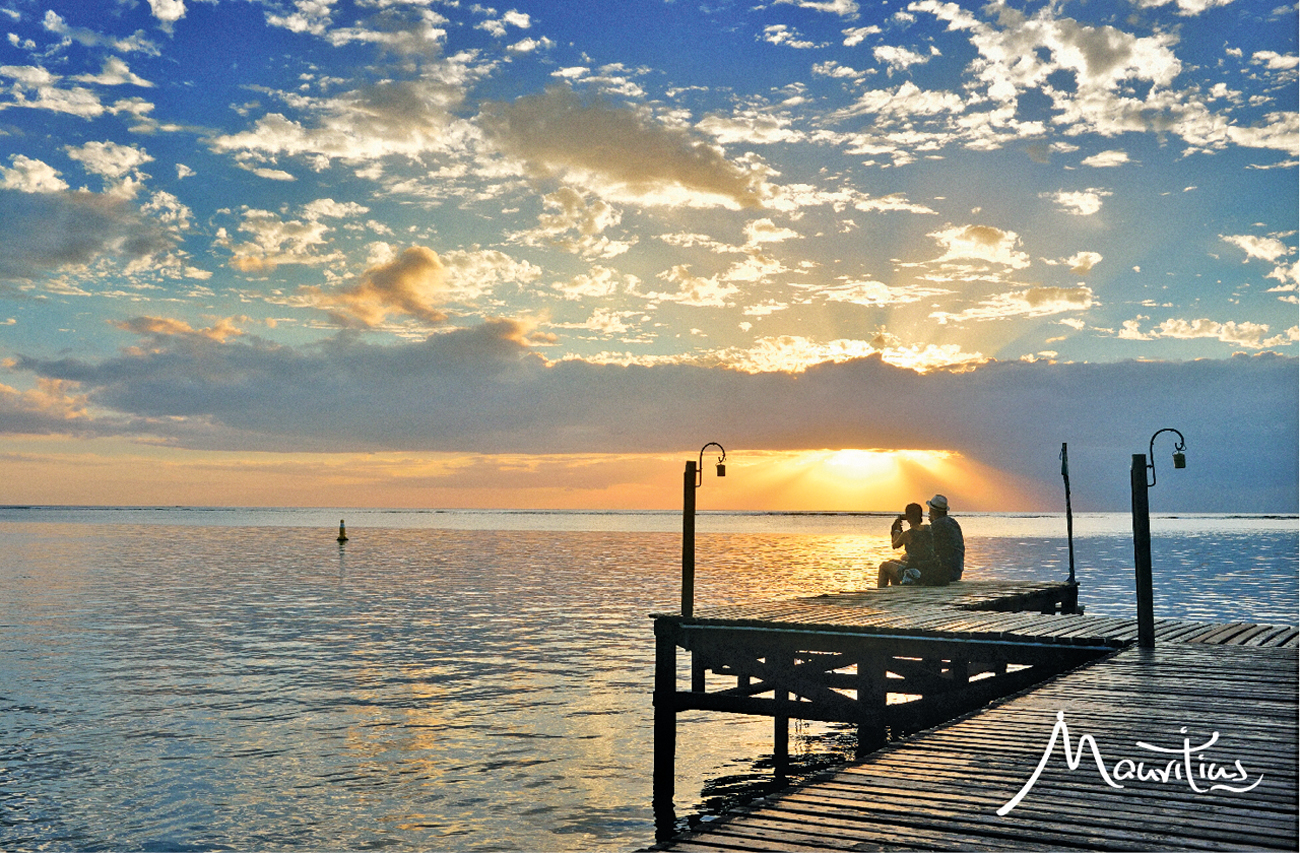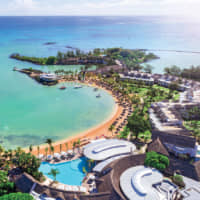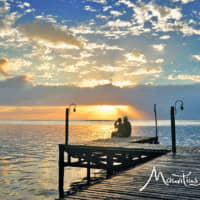As a dream vacation destination popular for decades, Mauritius was once as famous for its high-profile guests as its incredible scenery and hospitality. That has changed in recent years, and rising tourist figures will thrill investors chasing big returns on tourism projects
Blessed with breathtakingly beautiful beaches lapped by the warm waters of the Indian Ocean, and rich in history, tradition, culture and cuisine, Mauritius’ award-winning tourism offering is a melting pot that is second to none. Around 1.4 million international visitors arrived by air or sea in 2018, a number that will surely increase over the coming years as heavy investment in tourism infrastructure such as hotels, airports and ports attracts even more travelers to the sun-kissed tropical paradise. Plans for this significant capital expenditure are outlined in the latest edition of the national three-year strategic plan, as well as the Mauritius Vision 2030 development plan. Working in tandem, they aim to enhance the visibility of Mauritius as an up market tourist destination in traditional, emerging and new markets.
One of the main pillars of the strong economy and also a key source of employment and revenue, the tourism industry is estimated to directly employ 40,000 people. Several thousand other workers rely on the sector indirectly in support services.
Melting pot of exotic cultures is unique
The Mauritius Tourism Promotion Authority (MTPA) sums up the country’s ample assets in a colorful nutshell, “From the north’s incredible variety of beaches with stunning coves and lagoons, to the south’s volcanic landscape of the Chamarel Seven Colored Earths, visitors can indulge in all four corners of Mauritius by ‘Escaping, Enlivening, Enjoying and Exploring’.”
Not for the first time, Mauritius was awarded prestigious titles at the 2019 World Travel Awards (WTA), including the Indian Ocean’s Leading Destination. The country was also voted the World’s Best Island Destination for 2019 by the Pacific Area Travel Writers’ Association. Arvind Bundhun, director of the MTPA, was delighted with Mauritius’ performance at the “Oscars of the travel industry” as it increased the visibility of the island destination on the international front. “Mauritius is not only a sun, sea, and beach destination; we also have other attributes,” he said. “Mauritius is a melting pot of culture, traditions, religions, ethnicities, gastronomy and arts. It is also a safe destination for tourists and investment. The tourism business is firstly and foremost a people business, and what I hear as feedback from the 1.4 million tourists that come to Mauritius is the hospitality has a unique element that speaks volumes of our population.”
Bundhun notes the MTPA is now focusing on other attributes Mauritius boasts other than its amazing natural assets, such as the plethora of cultures, gastronomy and religion.” We also want to promote the clear air and sustainability here in Mauritius,” he added. “There is a plant called lichens that only grows in very pure air, you can find it in the Himalayas across various countries; we have it here in Mauritius growing on thousands of trees. This is another unique selling point that appeals to the Asian market.” The importance of a healthy tourism sector to national pride, well-being and socioeconomic development cannot be understated. “We cannot imagine Mauritius without a tourism industry,” said Minister of Tourism Anil Gayan. “Of course, there are challenges and there is much more competition today than in the past. The Maldives has increased its popularity over the years, but we have a product that is special. Anyone who visits Mauritius will not have the same experience anywhere else in the Indian Ocean. We want Mauritius to be a hub, a link between East Africa, Europe and the Indian Ocean. We are looking at all the opportunities in the aviation sector and are very focused on improving such services.
“Today, Africa is a land of opportunities, though mainstream media focus more on the continent’s remaining challenges. Like my ministry, the Seventh Tokyo International Conference on African Development finds inspiration in aspiring to explain Africa in an understandable way to reduce the gap between stereotypes and the traditional perception about the continent, and this new and exciting reality of development and openings.”
Japanese tourists and investors welcome
The minister is eager for Japanese foreign direct investment to maximize his country’s tourism offering, as well as help develop new sectors such as the ocean economy — one area in which Japan has a wealth of experience. “This is certainly an area we would be happy to get Japanese interest and investment, not only for fishing but for a number of things, including oil and gas exploration, or exploiting other minerals, like manganese,” he added. “At TICAD 7 we will showcase all the things Japanese tourists can do in Mauritius, from trekking to touring villages and visiting homes, participating in religious activities and cultural events. Mauritius is a multiethnic society, and almost every week there is an event that pertains to a particular religion or culture.
“This is something that the Japanese would never be able to see anywhere else in the world, it is not even the same in India. What we have done here is preserve the heritage that the Indian and African workers came with 200 years ago, and that has not changed. In India, for example, many things have changed, but here that tradition is preserved.”
Mauritius’ hospitality industry offers luxury around the clock that fits most budgets, with more than 110 hotels offering beautiful pools, views, and excellent cuisine and service. Unlike many of its counterparts, The Lux Collective offers a memorable experience, by inviting guests of all ages, backgrounds, and nationalities to explore the island and connect with people, rather than just operate as a base for beach lovers.
With the Japanese not known as huge sun worshippers, a stay at one of the handful of LUX Resorts and Hotels in Mauritius is ideal for guests from the East. Indeed, with The Lux Collective’s international headquarters now based in Singapore, the company has valuable experience of fine-tuning and tailoring its upscale offerings to guests from Japan and the wider region. The award-winning group’s Mauritian hotels and resorts boast magnificent views and gorgeous swimming pools set among lush landscaped gardens. Visitors can choose from rooms at the foot of the rugged and majestic Mount Le Morne, or stays amid the comfortable surroundings of the relaxing boutique resort of Belle Mare.
All the gorgeous hotels adopt a sustainable approach, including the stunning Lux Grand Gaube, found on the island’s northern coast and billed as a clever balance of contrasts and fresh design. In a new twist on high-end hospitality, The Lux Collective launched an exciting new project called Salt: a hotel that encourages people to get out and about, does not offer TV and invites guests to cook with the chefs. “We are not in the hospitality business, we are in the business of time,” explained Sydney Pierre, senior vice president, commercial, The Lux Collective. “People save for a year to afford to fly and stay in a hotel for a week. Our vision is that each moment matters, and so our purpose is to help guests celebrate life.
“Our pools and beaches are not better than the others, but what is better is our philosophy. This is our culture, people try to copy that, but this is natural for us, it’s our passion. Every person working for us, from the chef to the man making up the rooms, contributes to that culture. Our occupancy rates are high, but not because we are the cheapest. We believe in the experience we are providing.”
Flying away with the title of Leading Indian Ocean Airline 14 times in the last 17 years in the coveted WTA, including in this year’s edition, flag carrier Air Mauritius is also now one of the world’s top 40 airlines. The operator boasts an expanding route network, safe and modern fleet and is proud to be the world’s first operator of both the Airbus A350 and the Airbus A330neo models.
Setting sky-high standards of service
As the flag carrier, Air Mauritius is also a national icon and the largest company in the country, with its impressive four-star rating by Skytrax well deserved given the quality of its onboard product and staff service, both in the air and on the ground. Earlier this summer, Skytrax ranked Air Mauritius as the third-best African airline at the World Airline Awards.
Commenting on the multiple titles, Air Mauritius CEO, Somas Appavou, stated: “I dedicate these awards to the hard working people of Air Mauritius. It is a recognition of all the efforts put in by our personnel. As a Mauritian company, hospitality is in our DNA and we strive to improve our products and services so they best reflect the ‘mosaicity’ of our cultural heritage.”
With around 2,300 employees and flying to a combined two dozen destinations on four continents, the ambitious carrier is well aware of its importance to the country’s image, especially as for many travelers it will be the first Mauritian experience of their vacations. The airline’s network is also being reinforced in line with its ambition to transform Mauritius into a strategic aviation hub to connect countries and continents — with the help of international partners.
A new business model means Air Mauritius remains confident that initiatives taken and to come will allow the company to chart a new course for its future. The growing carrier intends to further increase its service and targets daily flights on other destinations adding to the existing daily flights to Paris, Johannesburg, Antananarivo, St. Denis and Pierrefonds (Reunion Island). In July, Air Mauritius launched twice weekly flights to the Seychelles.
The adoption of the Air Mauritius Hub Concept has, over the past decade, evolved from a point-to-point to an origin-and-destination network. This successful new business model offers more choice to its passengers through the hubs it operates with its many partner airlines.
Air Mauritius now offers more than 100 destinations from a series of hubs it operates with partner airlines, in Paris, Johannesburg, Nairobi, Kuala Lumpur, Singapore and Perth. Service to Europe has also been reinforced with seasonal flights to one of Europe’s key financial centers, the Swiss city of Geneva.





